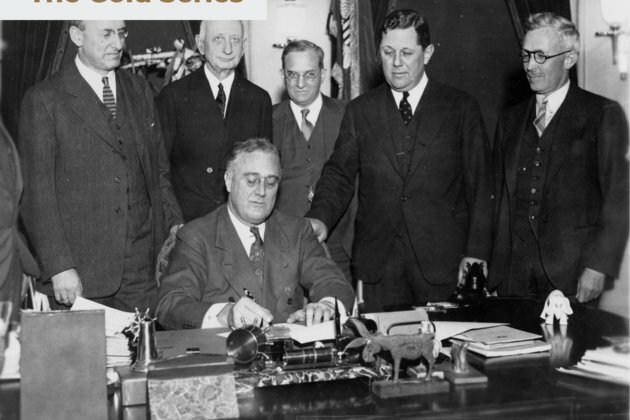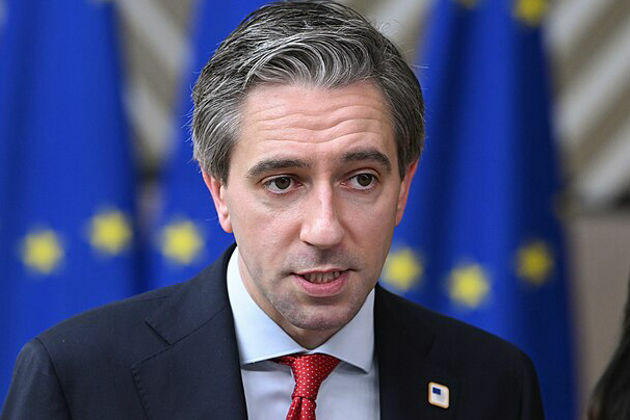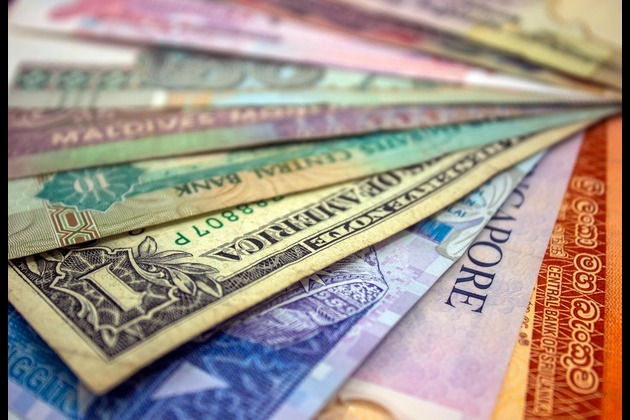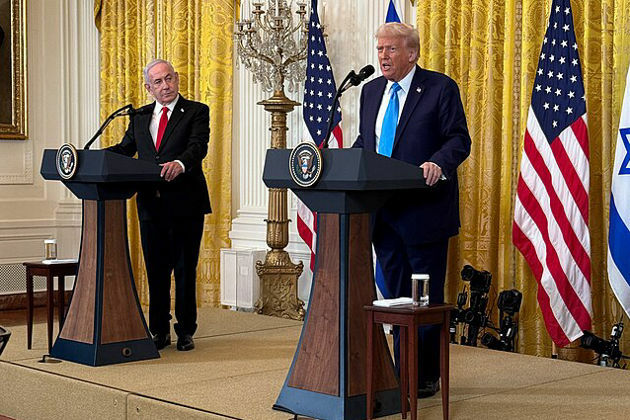How the US government seized all citizens' gold in 1930s
The Conversation
22 May 2020, 00:12 GMT+10

With global financial markets in disarray, many investors are turning to classic safe havens. Gold is trading above US$1,750 (Pound 1,429) per troy ounce, which is the standard measure - more than 15% above where it started 2020. Even after a strong rally since March, the S&P 500 is down nearly 10% over the same period.
Gold confers familiarity during downturns. Its returns are uncorrelated with assets like stocks, so it tends to hold its value when they fall. It is also a good way of avoiding currency devaluation. It therefore features in any well diversified investor's portfolio, whether via gold-mining shares, gold funds, bullion or whatever.
Yet there are two slight caveats to viewing gold as a safe haven. Early in an economic downturn, gold prices often plummet with the rest of the market. This is from investors selling gold to offset losses in shares and other assets. We saw this in March, when gold fell 12% in two weeks, then quickly recovered. If the coronavirus causes more market panic, this could happen again.
Gold return vs S&P 500 (Jan-May 2020)
During extreme crises, governments can also seize people's gold. There have been some stunning examples of "gold confiscation" in the past. Most memorably, this occurred in the US in 1933 during the great depression - albeit it's more accurate to call it a nationalisation than a confiscation, since citizens were compensated. The government of Franklin D Roosevelt seized all gold bullion and coins via Executive Order 1602, forcing citizens to sell at well below market rates. Immediately after the "confiscation", the government set a new official rate for gold that was much higher as part of the Gold Reserve Act 1934.
Gold has enthralled humanity since ancient times. Still it glitters from central bank vaults to jewellery bazaars the world over. The Conversation brings you five essential briefings by academic experts on the world's favourite precious metal. For more articles written by experts, join the hundreds of thousands who subscribe to our newsletter
This was the era of the gold standard, which meant dollars were tradeable for an exact amount of the precious metal. Seizing the metal enabled the government to print more dollars to try to stimulate the economy, and also to buy more dollars on the international markets to shore up the exchange rate.
Many gold owners were understandably unhappy about the gold seizure, and some fought it in the courts. Ultimately, however, the government could not be stopped, and gold ownership remained illegal in the US until the 1970s.
This intervention was not unique, even in contemporary history. In 1959, Australia's government put a law in place that allowed gold seizures from private citizens if "expedient to do so, for the protection of the currency or of the public credit of the Commonwealth [of Australia]". And in 1966, to stop the decline in the pound, the UK government banned citizens from owning more than four gold or silver coins and blocked the private import of gold. This was only lifted in 1979.
Horns of a trilemma
Why do governments risk the bad publicity of restricting gold? This is linked to a cornerstone of macroeconomics known as the monetary policy trilemma. This states that countries must choose between two of the following and can't generally do all three at the same time: (1) setting fixed exchange rates; (2) allowing capital to move freely over international borders; and (3) being able to independently set interest rates and print money (in other words, control monetary policy).
In the 1930s system, countries generally chose fixed exchange rates linked to gold, plus free capital movement and sacrificed control of monetary policy. The system came under more and more pressure because too many investors were trading in their money for gold. The only way for the US to take enough control of monetary policy to print more money was to impose various capital controls, including seizing gold.
Today, the situation is different because western economies have free-floating exchange rates so they have control over monetary policy and can allow capital to move freely. This means that during a crisis, they can print money and cut interest rates without having to impose controls on the likes of gold.
In fact, any direct meddling by governments in the gold markets today would likely be counterproductive. It would increase investor anxiety and encourage them to rush to other assets with similar properties such as silver or other precious metals. Those who hold gold are therefore probably safer than they might have been in the past.
There are alternatives open to governments besides outright gold nationalisation. For example, when the UK left the international gold standard in 1931, the devaluation of the pound put pressure on other currencies such as the Dutch guilder. In response, the Netherlands imposed a variety of restrictions on gold that stopped short of confiscation.
Again, this kind of move is unnecessary in today's era when countries control their own monetary policy. Gold will probably remain a safe haven on the sidelines - unless countries felt they had to sell their reserves aggressively for some reason, say to reduce debts. Even in the current crisis, that's not on the horizon. But the one lesson from history that all investors need to bear in mind is that in times of crisis, anything goes.
If you liked this article, find more expertise in our gold series:
Why gold prices go up and down - five charts
Since the demise of the gold standard in the early 1970s, the precious metal has gone through four distinct phases.
Countries went on a gold-buying spree before coronavirus took hold - here's why
Long before COVID-19, countries have been buying new reserves and bringing it home from overseas storage to an extent never seen in modern times.
I'm a bit of a modern-day alchemist, recovering gold from old mobile phones
There's 33 times more gold in the average handset than in the equivalent amount of ore. Yet the vast majority is never recovered.
Meet the struggling gold miners who are missing out on the boom in precious metals
You would think that anyone in the gold industry would be getting rich right now, but informal miners in many countries are missing out.
Get more news and information you can trust, direct from the experts.
Authors: Chris Colvin - Senior Lecturer in Economics, Queen's University Belfast | Philip Fliers - Lecturer in Finance, Queen's University Belfast 
 Share
Share
 Tweet
Tweet
 Share
Share
 Flip
Flip
 Email
Email
Watch latest videos
Subscribe and Follow
Get a daily dose of Leeds Times news through our daily email, its complimentary and keeps you fully up to date with world and business news as well.
News RELEASES
Publish news of your business, community or sports group, personnel appointments, major event and more by submitting a news release to Leeds Times.
More InformationEurope
SectionEarly heatwave grips Europe, leaving 8 dead and nations on alert
LONDON, U.K.: An unrelenting heatwave sweeping across Europe has pushed early summer temperatures to historic highs, triggering deadly...
Ireland’s Deputy PM calls for swift US-Ireland trade agreement
DUBLIN, Ireland: Tánaiste Simon Harris has called on the United States to use every hour to reach a zero-for-zero tariff agreement...
Dublin Bus accused of disability discrimination by blind passenger
DUBLIN, Ireland: A blind woman from Dublin says she was hurt while getting off a bus because the driver refused to pull in close to...
Nurses in Ireland sound alarm over growing hospital overcrowding
DUBLIN, Ireland: The Irish Nurses and Midwives Organisation (INMO) has warned that there could be a serious trolley crisis this summer...
Turkey, France battle wildfires amid early Europe heatwave
ISTANBUL/PARIS/BRUSSELS: As searing temperatures blanket much of Europe, wildfires are erupting and evacuation orders are being issued...
Greenback slides amid tax bill fears, trade deal uncertainty
NEW YORK CITY, New York: The U.S. dollar continues to lose ground, weighed down by growing concerns over Washington's fiscal outlook...
International
SectionTragedy in Spain: Diogo Jota and his brother die in car accident
MADRID, Spain: Liverpool footballer Diogo Jota and his younger brother, André Silva, have died in a car accident in Spain. Spanish...
Early heatwave grips Europe, leaving 8 dead and nations on alert
LONDON, U.K.: An unrelenting heatwave sweeping across Europe has pushed early summer temperatures to historic highs, triggering deadly...
U.S. military, China, Russia in Space race
President Donald Trump's plans to build a space-based Golden Dome missile defense shield have drawn immediate criticism from China,...
Trump wins $16 million settlement from Paramount over CBS Harris edit
NEW YORK CITY, New York: Paramount has agreed to pay US$16 million to settle a lawsuit brought by U.S. President Donald Trump over...
British PM faces major party revolt over welfare reforms
LONDON, U.K.: British Prime Minister Keir Starmer won a vote in Parliament this week to move ahead with changes to the country's welfare...
White House meeting between Trump, Netanyahu on July 7
WASHINGTON, D.C.: President Donald Trump will meet Israeli Prime Minister Benjamin Netanyahu at the White House on Monday. President...












